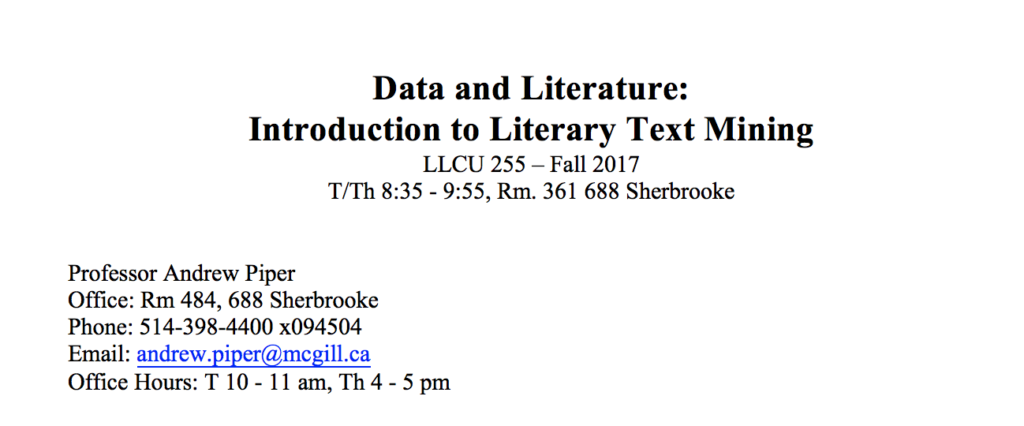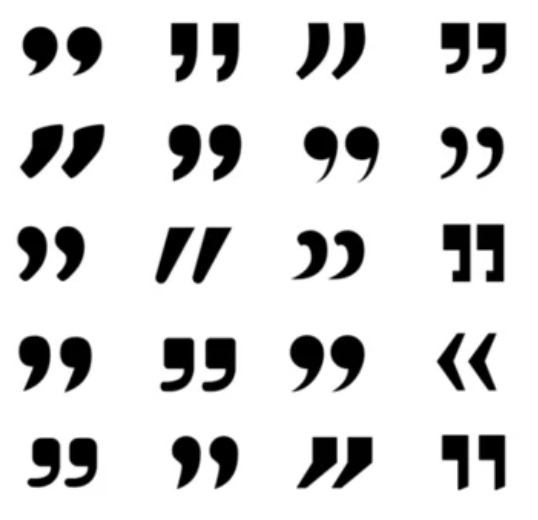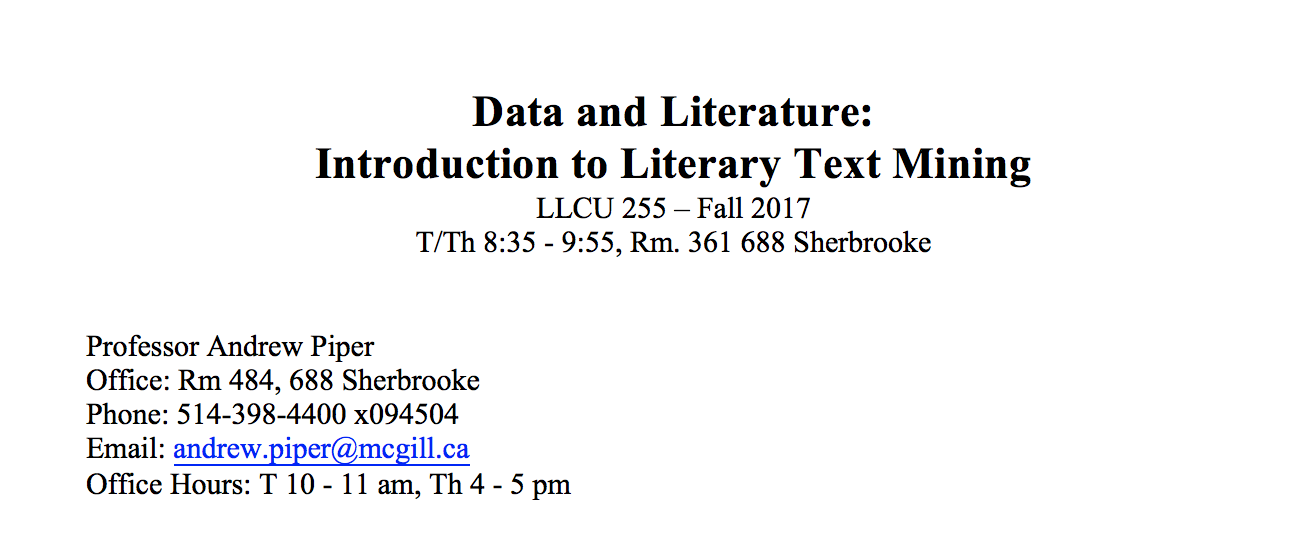LLCU 255: Intro to Literary Text Mining — New Syllabus 2017

Less but better. That’s the essentialist’s motto and that’s the one I use every year when I revise my syllabus. I keep removing things and students keep learning more every year. While there is clearly a ceiling for this approach, it works remarkably well as a pedagogical tactic. Here’s the full syllabus.
This year’s class will focus on three things:
- understanding what text mining or literary modeling is. I am always struck by how few students have ever heard of this field.
- being able to undertake a variety of analytical tasks, including preparing your data, significance testing, clustering, machine learning, sentiment analysis, and social network analysis.
- starting to generate ideas about how to apply these tools to good questions.
It’s the last one that is always the hardest. Learning how to use R may seem intimidating at first, but being good at creating creative models and measures for complex literary concepts is always the hardest part of this research.
The most rewarding part of this class is to see the mental transformation of students when the light bulb goes off — oh you mean I can test my beliefs on more than 1 text!?! That’s awesome!


2 Comments
Join the discussion and tell us your opinion.
[…] LLCU 255: Intro to Literary Text Mining — New Syllabus 2017 […]
[…] surpass the length of four lines. So, when I walked into Prof. Piper’s introductory course (LLCU 255: Introduction to Literary Text Mining), and he said some phrases like “run your code” and “statistical significance” I dropped […]